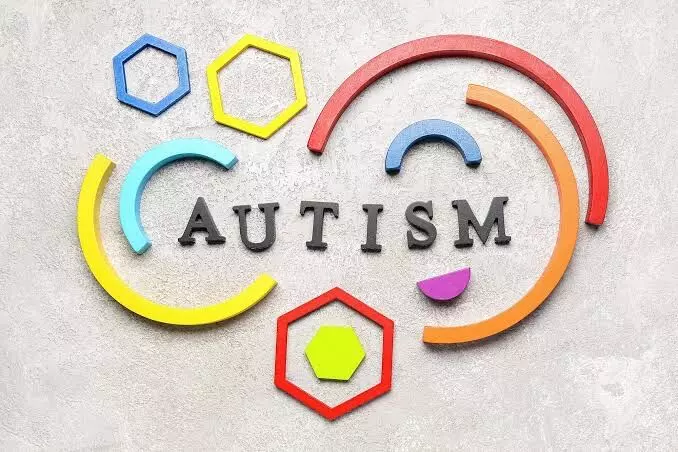What is autism spectrum disorder? Why is it witnessing a steady increase in India?
Autism Spectrum Disorder is a complex neurodevelopmental condition
By Anoushka Caroline Williams
Representational Image.
Hyderabad: India is witnessing a steady increase in autism spectrum disorder (ASD) diagnoses, a trend that reflects both improved awareness and the growing need for structured support systems.
According to Dr. Shruti Mishra, Developmental and Behavioural Paediatrician at Ankura Hospital for Women and Children, this shift reveals a deeper understanding of neurodevelopment health in the country but also points to pressing systemic challenges.
Autism in India: A Growing Recognition
Autism Spectrum Disorder is a complex neurodevelopmental condition characterized by difficulties in social communication, restricted interests, and repetitive behaviours.
“As a spectrum disorder, its manifestations vary significantly in severity and form,” explained Dr. Mishra. Some individuals require continuous support, while others may function independently but still face behavioral and social hurdles.
Citing the INCLEN study, Dr. Mishra noted that the estimated prevalence of ASD in India is now 1.12 per 100 children. This rise, she said, can largely be attributed to improved diagnostic awareness, updated guidelines, and the reduction of stigma.
“While this trend reflects a positive shift in societal attitudes and healthcare accessibility, it has simultaneously exposed critical gaps in available resources and specialized services,” she added.
Earlier Detection and Shifting Social Attitudes
Historically, autism was frequently overlooked or misdiagnosed, particularly in rural or underserved areas. “Limited knowledge among healthcare professionals, coupled with social misconceptions, often delayed or prevented timely identification,” said Dr. Mishra.
She emphasized that improved awareness among parents, educators, and clinicians has led to earlier referrals and more accurate diagnoses. Though factors such as advanced paternal age and the rise in nuclear families have been discussed as potential contributors, Dr. Mishra cautioned that “strong scientific evidence to establish causality remains inconclusive.”
A major factor contributing to improved diagnosis rates is the reduced social stigma. “Today, a more informed and accepting environment has been fostered, encouraging caregivers to pursue early intervention and professional assistance without fear or hesitation,” she said.
Importance of Early Intervention
Dr. Mishra stressed that early intervention plays a pivotal role in improving outcomes for children with ASD. “Intervention initiated before the age of three leads to measurable improvements in communication, social skills, cognition, and behavior regulation,” she said, attributing this success to the brain’s neuroplasticity during early development.
Evidence-based therapies such as applied behavior analysis, speech and language therapy, occupational therapy, and parent-led interventions have been most effective when introduced early. “Active participation of caregivers in therapy sessions and home-based reinforcement of techniques has shown to significantly enhance progress,” Dr. Mishra added.
Systemic Challenges and Institutional Responses
The increasing number of diagnoses has also put considerable pressure on India’s healthcare system. “A significant shortage of trained developmental professionals, limited access to multidisciplinary therapy services, and the lack of inclusive education infrastructure have emerged as pressing concerns,” she said.
In response, Ankura Hospital has established a dedicated Child Development Center offering screening, diagnosis, and structured intervention programs. “A multidisciplinary team comprising developmental pediatricians, psychologists, speech-language pathologists, occupational therapists, and special educators collaboratively manages care,” Dr. Mishra explained.
The hospital has also adopted an open-door policy for therapy sessions, and regularly conducts parent training programs to ensure continued support at home.
A Turning Point in National Discourse
“The increase in autism diagnoses in India marks a turning point in the national discourse around child development,” said Dr. Mishra. While acknowledging that it reflects progress, she underscored the need for systemic improvements in early intervention access, professional training, policy development, and inclusive support frameworks.
“With sustained awareness efforts, investment in healthcare infrastructure, and collaborative community involvement, children with ASD can be empowered to reach their fullest potential and lead enriched, independent lives,” she concluded.